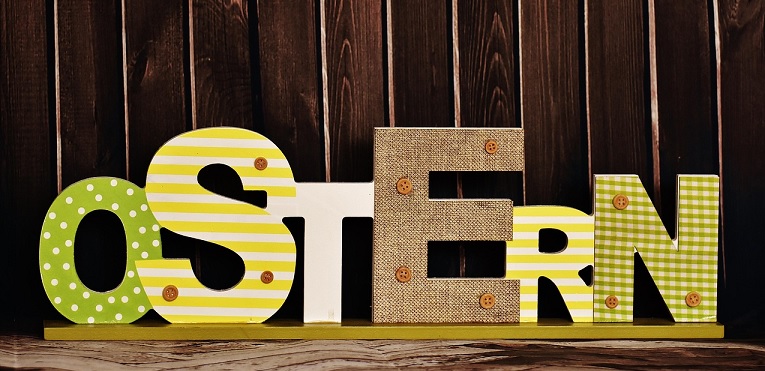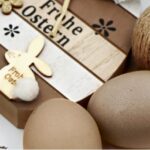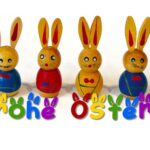
Easter, or Ostern in German, is one of the most significant holidays in Germany. While Christmas might get more attention globally, Easter plays a crucial role in German culture, religion, and family traditions. From ancient fertility rites to Christian observances and festive Easter markets, Germany’s Easter customs are deeply rooted in history.
But what exactly does Ostern mean, and why is it such an important holiday in Germany? Let’s explore the history, religious significance, and cultural impact of Easter in Germany – including how both religious and non-religious Germans celebrate this cherished holiday.
The Religious Meaning of Easter in Germany
For practicing Christians, Easter is the most important holiday of the year, commemorating the resurrection of Jesus Christ. In Germany, both Protestant and Catholic communities observe Easter with:
- Good Friday (Karfreitag): A solemn holiday marked by church services, fasting, and reflection.
- Easter Sunday (Ostersonntag): The celebratory day of Christ’s resurrection, filled with joyful gatherings and feasting.
- Easter Monday (Ostermontag): A public holiday unique to Germany, allowing for extended celebrations and family visits.
These observances make Easter a deeply meaningful religious festival, but its importance extends beyond the church.
The Pagan Origins of Ostern
The name Ostern (Easter) is believed to be derived from Eostre (or Ostara), the pagan goddess of spring and fertility. Long before Christianity arrived, Germanic tribes celebrated the arrival of spring with festivals dedicated to Eostre. Many modern Easter customs in Germany – such as eggs, hares, and bonfires – have pagan origins.
Ancient Traditions That Became Part of Easter
- Eggs symbolized fertility and new life, a concept later adopted into Christian Easter traditions.
- The hare (now the Easter Bunny) was associated with Eostre’s fertility powers, which is why Germans invented the Osterhase (Easter Bunny).
- Easter bonfires (Osterfeuer), originally pagan rituals, were adapted into Christian traditions symbolizing the victory of light over darkness.
Read more: The History of Easter in Germany: Pagan Roots to Christian Traditions
Why Is Easter So Important in German Culture?
While Easter holds deep religious significance, it’s also a major cultural holiday that brings together families and communities.
1. Easter Is a Major National Holiday
- Germany observes multiple public holidays for Easter, including Good Friday, Easter Sunday, and Easter Monday.
- Unlike many other countries, Easter Monday is an official holiday, giving Germans a long Easter weekend for celebrations.
- Many businesses, schools, and government offices close, emphasizing family gatherings and cultural traditions.
Read more: Easter Sunday vs. Easter Monday in Germany: Why Germans Get Two Holidays
2. It’s a Time for Family and Feasting
Easter is one of the biggest family holidays in Germany, featuring:
- Easter feasts, including Osterlamm (Easter Lamb Cake) and Festtagsbraten (Holiday Roast).
- Egg decorating and Easter egg hunts, beloved traditions for children.
- Outdoor activities, like hiking and attending Easter fairs.
Read more: German Easter Foods: What’s on the Table During Ostern?
3. Unique Easter Markets and Festivities
Similar to Christmas markets, Germany is famous for Easter markets (Ostermärkte), featuring:
- Handcrafted Easter decorations
- Traditional German Easter foods
- Live folk music and cultural performances
These markets are especially popular in Bavaria, Saxony, and Berlin, drawing thousands of visitors each year.
Read more: German Easter Markets: Where to Find the Best Easter Celebrations
Regional Easter Traditions in Germany
Germany’s Easter celebrations vary by region, blending Christian, folk, and historical influences.
1. The Easter Bunny (Osterhase) and Egg Hunts
Germany is the birthplace of the Easter Bunny. The Osterhase tradition began in the 17th century, when German folklore described a hare that laid colorful eggs for well-behaved children.
Today, Easter egg hunts remain one of Germany’s most cherished traditions, with families organizing egg hunts in gardens, parks, and even forests.
Read more: The Fascinating Story Behind the German Easter Bunny (Osterhase)
2. Easter Bonfires (Osterfeuer) in Northern Germany
In Northern Germany, large Easter bonfires are lit on Holy Saturday, a custom dating back to pagan times. These fires symbolize the victory of spring over winter and remain a major social event.
Read more: The Symbolism of Easter Fires (Osterfeuer) in Germany
3. The Stunning Easter Fountains of Bavaria
Bavaria and Franconia celebrate Osterbrunnen, a tradition where public fountains are decorated with thousands of painted eggs and garlands.
Read more: Osterbrunnen: The Stunning Easter Fountains of Bavaria and Franconia
4. The Sorbian Art of Easter Egg Decorating
In Saxony, the Sorbian ethnic group creates intricately hand-painted Easter eggs using beeswax and natural dyes, a tradition passed down for centuries.
Read more: Decorating Easter Eggs in Germany: The Art of Sorbian and Hand-Painted Eggs
Easter Foods and Festive Traditions
Food plays a central role in German Easter celebrations, with traditional dishes including:
- Osterlamm (Easter Lamb Cake) – A sweet cake shaped like a lamb, symbolizing sacrifice and renewal.
- Gründonnerstag (Green Thursday) dishes – Germans eat green foods on Maundy Thursday, such as spinach soup and chives, to honor a medieval fasting tradition.
- Easter Sunday Feasts – Families enjoy a Festtagsbraten (Holiday Roast), typically featuring lamb or pork.
Read more: Why Do Germans Eat Green Food on Maundy Thursday?
Easter (Ostern) is one of the most significant holidays in Germany, combining Christian beliefs, pagan traditions, and cultural customs. From Easter egg hunts and bonfires to Osterbrunnen and festive feasts, Easter in Germany is a time of joy, renewal, and community.
Whether you celebrate Easter for religious reasons, family traditions, or cultural appreciation, there’s no denying that Ostern holds a special place in the heart of German culture.
Want to Learn More About German Easter?







